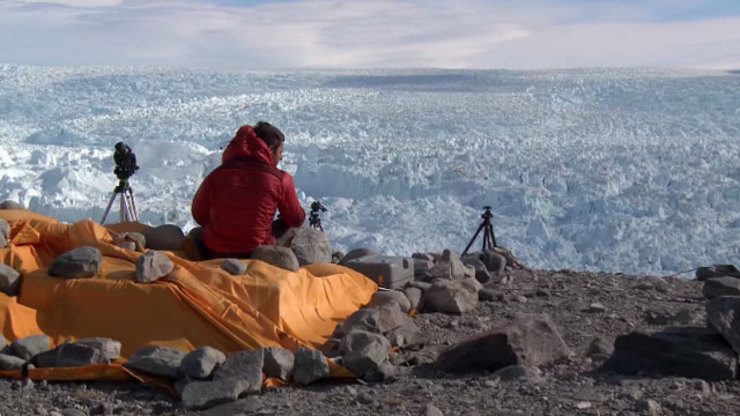SUMMARY
This is AI generated summarization, which may have errors. For context, always refer to the full article.

Having lived in Asia for many years, I realized that climate change, much less vanishing glaciers caused by climate change, is nowhere in the general public’s consciousness despite the terrible consequences on communities all over the region.
Only when we suffer from severe storms and other climate change-related disasters such as floods and landslides do we think briefly about why it seems that more and more extreme weather events happen. But even then, our focus is more on immediate relief and response rather than underlying causes, risks, and long-term prevention strategies.
I was encouraged by the massive turnout at the recent People’s Climate March in New York. Everyone I encountered there was convinced that humankind needed to change business as usual – our lifestyles, how business is done, and how governments work.
We need all stakeholders from all sectors to think about the impact climate change is already having on our lives and how we can prevent or mitigate further negative consequences
However, the same urgency about the need to act NOW has not resonated in Asia despite being the region most vulnerable to climate change. The changing weather patterns threaten agricultural productivity and food security in the region. Extreme weather events such as typhoons and floods affect coastal communities and water resources. Diseases in the region such as cholera and malaria have also been exacerbated by climate change. Another cause of Asia’s vulnerability are the megacities with populations over 10 million but with inadequate infrastructure.
Chasing Ice
The goal for the week-long Chasing Ice Global Screening initiative is to localize and personalize a critical global issue that is no longer (or perhaps has never been) sexy or interesting to the public – in Asia and most parts of the world. The visual and emotive medium of the Emmy award-winning documentary can spark a global grassroots conversation about the causes, risks, and consequences of climate change and galvanize concrete action toward solutions.

For me, the power of Chasing Ice stems from the shock of seeing massive and ancient glaciers vanish in a blink of an eye. Watching the stunning imagery of the magnificent and essential regulators and indicators of our global climate system disappear into the ocean left me with a sense of foreboding and sense of urgency to do something about it.
The event revolves around the International Day of Climate Action on October 24 because it speaks to our ultimate goal – for individuals, communities, businesses and governments to take immediate action before it’s too late to reverse the catastrophic trajectory we are currently on.
Changing planet
As just one individual, I knew there wasn’t much I could do to have a direct impact on the large-scale causes of climate change, but I do believe in the power of collective action of informed and passionate people from all over the world to make a difference. After all, we all have a stake in what happens to our planet.
We need all stakeholders from all sectors to think about the impact climate change is already having on our lives and how we can prevent or mitigate further negative consequences. We need to think about climate change’s impact on society, business, economy, human health, and marine and wildlife ecosystems.
We need people to realize that this seemingly distant issue will affect each and every one of us. I hope everyday citizens will reach out to their local environmental organizations – whether nonprofits, government agencies or businesses – to learn more about their community’s specific risk to climate change and find out what they can do to be a part of the solution. If we don’t, we’re screwed. – Rappler.com
Abbie Jung is a co-founder of Synergy Social Ventures, a non-profit organization that believes philanthropy and social entrepreneurship are necessary tools for sustainable development. Synergy runs a Help Desk and Advisory program for early stage social entrepreneurs and Giving Circles for new philanthropists called Future Funders.
Rappler will feature a special livestream of Chasing Ice on October 24 at 9:30 pm.
Add a comment
How does this make you feel?
There are no comments yet. Add your comment to start the conversation.